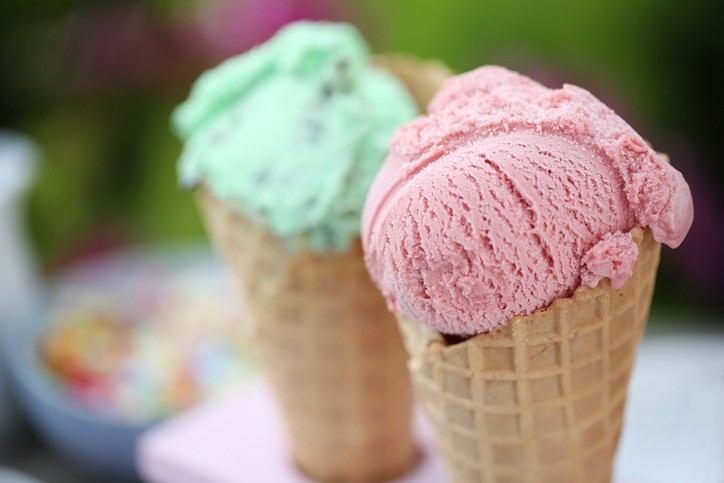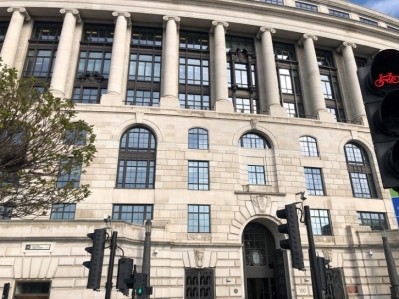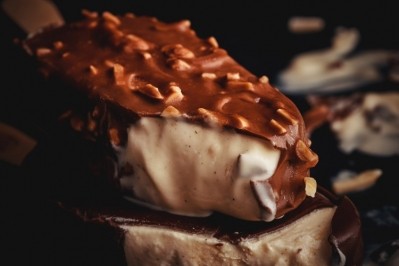Unilever scrambles to reinforce its ice cream business ahead of separation by 2025

“I expect 2024 to improve versus 2023 on all metrics [for the ice cream business] – top line, gross margin, operating margin and cash delivery – and I am still convinced that we are going to get there for the full year,” CEO Hein Schumacher told analysts gathered at Barclays 17th Annual Global Consumer Staples Conference this week.
The company has undertaken aggressive initiatives to improve the ice cream division’s customer service, pricing and competitiveness – particularly in US and Europe – since announcing earlier this year plans to separate the business, which includes iconic brands Ben & Jerry’s and Magnum, from the rest of Unilever’s shelf stable food and personal care brands.
These efforts helped the business gain share in the US and several European markets, according to Schumacher, but sales and earnings results shared at the half year mark suggest Unilever has more work to fix some of its execution and operations.
In the first half of the year, underlying sales growth for Unilever’s ice cream division remained relatively flat with only 0.6% growth – all of which came from price and not volume. In the period, underlying volume growth for the business fell 1% while underlying price growth increased 1.6%, Unilever reported as part of its second quarter earnings results in July.
“The disappointing performance has been fundamentally driven by what I would call a very weak performance in China, where the market conditions [have] been tougher and where we have been under competitive pressure … and, of course, some bad conditions of weather in Europe,” CFO Fernando Fernandez said at the time.
‘We are making those improvements’
He stressed that “after a very poor year last year” Unilever has “implemented actions in several areas” including restoring competitiveness in the business’ pricing and promotion strategy and improving “the level of execution in point of sale of our innovation.”
As such, he predicted “sequential improvement quarter on quarter in ice cream,” as Unilever works “to really put this business in a very good footing prior to separation.”
Schumacher reiterated this message on Thursday, stressing that despite a “bit of delay … we are making those improvements.”
He stressed that Unilever’s ice cream business “is actually a very good business. It is a very strong business and it can stand on its own.”
He went on to add the business “needs to stand on its own to flourish and to grow faster,” which is why Unilever is “absolutely determined” to separate ice cream from the rest of the business towards the end of 2025.
“The route we are taking, it is good for shareholders because they can benefit from the standalone nature of that group by holding shares in that company. And, I think, it is a higher value creation route,” and “a route that we can control,” he added.
Unilever places fewer, ‘bigger bets with greater impact’
Separating the ice cream division from the rest of Unilever is part of a broader initiative, dubbed the Growth Action Plan or GAP, to turnaround the larger company’s performance.
“The Growth Action Plan that we launched last year in October is really about making choices, doing fewer things as we say, bigger bets with greater impact,” which means focusing funds behind Unilever’s “30 power brands” and on gross margin, Schumacher said at the Barclays’ event.
While he acknowledged “we are not yet where I would like to see it,” he said, “we’ve seen good progress in the first half of the volume led growth in the business, strong gross margin expansion and in competitiveness.”
At the half year mark, Unilever reported accelerated volume growth up 2.6%, gross margin expansion of 45.7% and strong profit growth up 17.1% compared to the same time last year. Within nutrition, which includes Hellmann’s and Knorr, underlying sales for the first half of the year increased 3.2%, but gain that was price – which was up 3.2% while volume growth was flat, the company reported.
Central to Unilever’s GAP is innovation, which Schumacher described at Barclays’ event as “the lifeblood for CPGs.”
He explained that he is a “very big believer in innovation, but it needs to have a serious program” that runs across multiple years, and it needs to be scalable.
“That is where we had to step up,” and under GAP, Unilever has doubled the average size of innovation and “put a number of big bets down” behind the company’s 30 power brands that Schumacher said he believes will pay off in the net two to three years.
For example, the company reported at the half year mark that Knorr volumes grew driven by innovation in Latin America and Hellmann’s flavored mayo expansion helped drive positive volume growth in dressings.

















